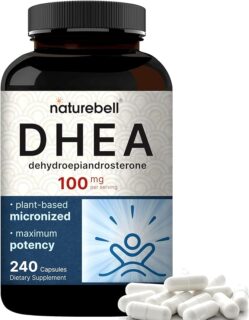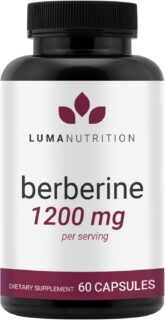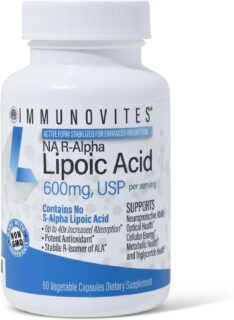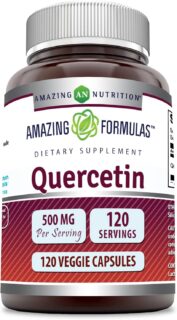Dave Pascoe is 62 years old – chronologically that is, but biologically 37.95 years old and looks every bit of it. Pascoe has adopted various anti-aging/longevity interventions to directly address the Hallmarks of Aging. Recently, he’s begun his own version of the TRIIM Trial – Thymic Rejuvenation and Immunorestoration and Insulin Mitigation, which finds its origins in a study that reversed biological aging.
What Is the TRIIM Trial?
In this article, we will explain:
- What is the TRIIM trial?
- The scientific evidence that supports the research.
- Dave Pascoe’s take on the TRIIM trial
The Science Behind The TRIIM Trial
A group of researchers set out to find how to restore the thymus – a hormone gland that matures white blood cells (T cells). Unfortunately, with age, the thymus gland becomes less active, gradually shrinking in size, increasing the risk for infection and cancer,
“[t]hymic involution leads to the depletion of critical immune cell populations, […] and is linked to age‐related increases in cancer incidence, infectious disease, autoimmune conditions, generalized inflammation, atherosclerosis, and all‐cause mortality.”
For the aforementioned reasons, Prof. Steve Horvath from the University of California, Los Angeles School of Public Health and colleagues organized the TRIIM (Thymus Regeneration, Immunorestoration, and Insulin Mitigation) trial to see if they could restore function in the aging thymus.
Taking place between 2015–2017, Prof. Horvath and his team recruited 10 healthy adult males aged 51–65. During the first week of the trial, the participants received recombinant human growth hormone (rhGH) which, in its natural state, supports cellular health. The researchers then gradually added the steroid hormone dehydroepiandrosterone (DHEA) and then metformin.
Following this, the researchers conducted MRI imaging, blood tests, as well as epigenetic age tests at various stages of the trial. The findings, published in 2021 in Frontiers in Immunology, revealed that the rhGH, DHEA, and metformin combination restored the thymus gland later in life, yet that’s not all they found. In fact, they may have also found a way to turn back the biological clock:
“Although, on average, trial volunteer epigenetic ages were lower than their chronological ages at baseline, epigenetic age was nevertheless significantly decreased by treatment […], with a mean change in [the difference between the epigenetic age and chronological age] after 12 months of about 2.5 years.”
Despite the promising results, the researchers caution that the trial sample was small, so future and larger studies are needed to confirm the findings.
Dave Pascoe Takes On TRIIM
1. Ipamorelin
Despite the original study’s findings, Pascoe has chosen not to take GH due to its potential to promote cancer. Instead, he’s opted for a growth hormone secretagogue (GHS) – CJC-1295/Ipamorelin – in an attempt to stimulate his body’s own production of growth hormone.
There are suggestions that by stimulating the body’s release of growth hormones, Ipamorelin may increase muscle mass and strength, and even have anti-aging effects.
2. DHEA
As mentioned, the original TRIIM trial featured DHEA, yet it’s a supplement that Pascoe has been taking in an effort to support age-declining levels. That said, he’s looking to increase his dosage.
As DHEA levels decline with age, supplementing may help improve the aging process, especially because DHEA has been linked to improving memory and heart health.
3. Metformin
While studies have showcased its potential benefits, Pascoe chose not to include it in his trial due to its negative impact on mitochondria. Instead, he’s using berberine, R-Lipoic Acid, and quercetin in place of metformin.
- Berberine
Past research has found that berberine can help manage diabetes, potentially support heart health, and possibly reduce the risk of dementia.
According to Pascoe, berberine’s mechanisms closely mirror those of metformin.
- R-Lipoic Acid
A naturally occurring form of alpha-lipoic acid (ALA), R-Lipoic Acid has been found to have potent antioxidant effects, improve BMI, and reduce inflammation risk.
- Quercetin
A strong antioxidant compound, quercetin’s senolytic properties help to clear out senescent cells, reducing the risk for age-related diseases and improving overall longevity and health span.
Does Dave Pascoe’s TRIIM TRIAL Protocol Work?
Currently, Pascoe has only noticed an improvement in his sleep scores, with them being better than ever. We will be sure to closely follow his progress to confirm if he’s discovered an anti-aging protocol. Nonetheless, he strongly advises that you consult a healthcare professional before starting his protocol to ensure it’s appropriate for your needs.
In the meantime, you can read more about Dave Pascoe’s 10-Step Guide to Longevity.
Dave Pascoe: 61 Year-Old Longevity Biohacker With Body of A 38-Year-Old
References
Bobe, G., Michels, A. J., Zhang, W. J., Purnell, J. Q., et al. (2020). A Randomized Controlled Trial of Long-Term (R)-α-Lipoic Acid Supplementation Promotes Weight Loss in Overweight or Obese Adults without Altering Baseline Elevated Plasma Triglyceride Concentrations. The Journal of nutrition, 150(9), 2336–2345. https://doi.org/10.1093/jn/nxaa203
Cai, Y., Xin, Q., Lu, J., Miao, Y., Lin, Q., Cong, W., & Chen, K. (2021). A New Therapeutic Candidate for Cardiovascular Diseases: Berberine. Frontiers in Pharmacology, 12, 631100. https://doi.org/10.3389/fphar.2021.631100
Duah, M., Li, L., Shen, J., Lan, Q., Pan, B., & Xu, K. (2021). Thymus Degeneration and Regeneration. Frontiers in Immunology, 12, 706244. https://doi.org/10.3389/fimmu.2021.706244
Och, A., Och, M., Nowak, R., Podgórska, D., & Podgórski, R. (2022). Berberine, a Herbal Metabolite in the Metabolic Syndrome: The Risk Factors, Course, and Consequences of the Disease. Molecules, 27(4), 1351. https://doi.org/10.3390/molecules27041351
Shinjyo, N., Parkinson, J., Bell, J., Katsuno, T., & Bligh, A. (2020). Berberine for prevention of dementia associated with diabetes and its comorbidities: A systematic review. Journal of Integrative Medicine, 18(2), 125-151. https://doi.org/10.1016/j.joim.2020.01.004







![women [longevity live]](https://longevitylive.com/wp-content/uploads/2020/01/photo-of-women-walking-down-the-street-1116984-100x100.jpg)










